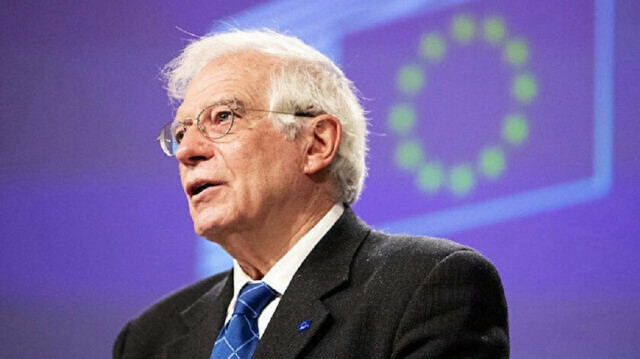
EU deterrence 'has not been strong enough to stop Putin’s aggression,' says Josep Borrell
The EU must expand “a lot” its deterrence capacity as it was not able to prevent the war, the EU foreign policy chief said on Tuesday, referring to the ongoing Russia-Ukraine war.
“Our deterrence has not been strong enough to stop (Russian President Vladimir) Putin’s aggression,” Josep Borrell told EU lawmakers at the European Parliament’s plenary session dedicated to the Russian-Ukrainian war.
He stressed that the EU must strengthen its “deterrence capacity a lot” to be able to prevent wars.
He argued that the Russia-Ukraine war shed a light on the fact that the common EU defense is “no longer a luxury, it is a necessity,” stressing that the bloc needs “instruments for coercion, retaliation, and counter-attacks.”
This will be “the birth certificate of a geopolitical Europe,” Borrell stressed, referring to the bloc’s new defense strategy, the so-called Strategic Compass that will be adopted next week.
At the same time, he asserted that the EU has already demonstrated its ability to act as a “hard power” by imposing strong sanctions on Russia.
Borrell’s Strategic Compass sets concrete proposals and timelines for strengthening the EU defense, such as setting up a swiftly deployable EU force of 5,000 troops, investing in industrial capabilities, and securing the bloc against cyberattacks.
The plan would strengthen the bloc’s defense in a complementary way to NATO requirements.
EU lawmakers will vote later on Tuesday for a resolution condemning Russia's war on Ukraine.
- Latest developments
Since Russia's war on Ukraine began last Thursday, it has been met by outrage from the international community, with the EU, UK, and US implementing a range of economic sanctions on Russia.
The EU adopted last week three sanctions packages against Russia, targeting among others, President Putin, top diplomat Sergey Lavrov, the Russian banking sector, and key state-owned companies.
On Sunday, Ukrainian President Volodymyr Zelenskyy officially signed his country's request to join the EU.
In an open letter, Lithuania, Latvia, Estonia, the Czech Republic, Bulgaria, Slovakia, Slovenia, and Romania expressed support for Ukraine's swift candidacy.
So far, at least 136 civilians, including 13 children, have been killed and 400 others, including 26 children, injured in Ukraine, according to UN figures.
Around 660,000 people have fled Ukraine to neighboring countries, the UN refugee agency said on Tuesday.
Hello, the comments you share on our site are a valuable resource for other users. Please respect other users and different opinions. Do not use rude, offensive, derogatory, or discriminatory language.
The floor is all yours.








